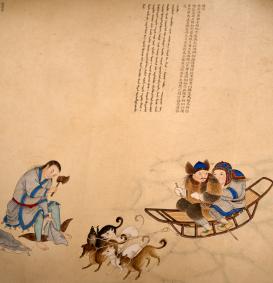Establishing and promulgating standard languages were essential features of state-building in nation states in the nineteenth and twentieth centuries, and continue to be so in many parts of the world. In China, the standardization and government-supported spread of Mandarin began in earnest in the last century. Empires, however, are different from nation states. Empires like the Qing recognized and maintained particularistic groups as a strategy of governance. The linguistic makeup of the Qing empire reflected both its cultural variety and the government's attempts to maintain it. Both historical processes beyond the government's control and changing policies contributed to the transformation of the sociolinguistic landscape in ways that are understudied and still poorly understood.
It is clear, however, that the legacy of the Qing empire continues to impact the sociopolitical situation of language in China today. This is especially clear in Inner Asia. Here, official acknowledgment of the important role of local languages for the region's communities has given way to a policy that is increasingly focused on assimilation. Elucidating the imperial history that eventually produced this situation will help us better understand the current predicament of these regions. This project will therefore research the ways in which the Qing imperial government used language to rule its diverse Inner Asian periphery and the problems that the linguistic situation there in turn posed for imperial rule. At the MPIWG, I will use the resources available through LoGaRT to assemble sources for the project.

